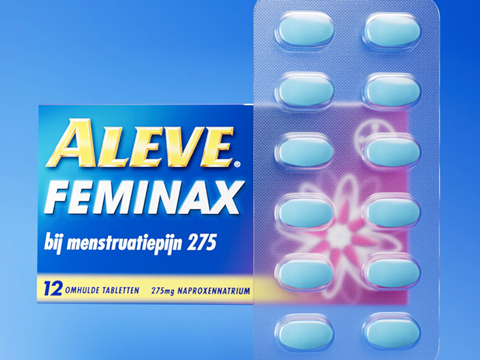
In partnership with Liveo Research, Bayer has developed a ‘first-of-its-kind’ PET blister pack for its over-the-counter Aleve drug brand – and reports a 38% reduction in carbon footprint through its elimination of PVC.
Due to its traditional multilayer plastic and aluminium composition, blister packaging is considered difficult to sort and recycle. On the other hand, Bayer identifies PET as a widely recycled plastic in other industries.
With its new PET blister pack, the company claims to have lightweighted the package by 18% per unit compared to its previous design. It also claims to use 78% less water and 53% less land per unit to produce the pack, and in doing so, hopes to reduce the factors contributing to biodiversity loss.
The pack will initially be distributed in the Netherlands, but Bayer hopes to replace all its blister packaging with sustainability-minded redesigns in the coming years. It adds that the new blister will come at no extra cost to consumers.
“Our goal is to transform our packaging to deliver remarkable experiences to our consumers while minimizing our environmental impact and ultimately creating circular solutions,” said Chris Padain, vice president and global head of Design, Packaging, Product Experience & Sustainability for Bayer’s Consumer Health division. “With its improved carbon footprint and decreased impact on water use and land, we’re proud of this step forward in our journey towards environmental sustainability.”
Dr. Carsten Heldmann, CEO of Liveo Research, continued: “With the introduction of our PET One-Material Blister into Bayer’s Aleve product range, we’ve proven that more sustainable blister packaging is possible on a large, global scale. Waste and CO2 can already be saved today.
“As a specialized pharmaceutical packaging company, we will continue to support this industry to deliver their sustainability targets while complying with the strict regulatory requirements.”
However, Bayer emphasizes that the recycling industry must evolve to ensure that its blister packs achieve full circularity – highlighting its own research into new ways to package over-the-counter, non-prescription medicines without sacrificing safety, quality, or effectiveness.
Last year, Bayer joined PA Consulting and PulPac’s Blister Pack Collective, which seeks to manufacture fibre-based blister packs from Dry Molded Fiber (DMF) for the pharma, consumer health, and FMCG industries. DMF technology requires “minimal” water and apparently reduces the CO2 footprint of plastic alternatives by up to 80%.
Sanofi Consumer Healthcare also joined the collective earlier this year; its own objectives are to phase out single-use plastics worldwide and cut down on the 100,000 tonnes of plastic said to be used in the medical packaging sector every year.
In other news, SÜDPACK previously unveiled a recyclable, mono-polypropylene blister pack for the pharmaceutical, medical goods, and life science industries; a Life Cycle Assessment suggested that it reduces CO2 equivalent and lowers the water and energy consumption of other blister solutions.
Additionally, TekniPlex Healthcare and Alpek Polyester showcased the ‘world’s first’ pharmaceutical-grade PET blister film containing post-consumer recycled content at Pharmapack 2024. 30% of the film is made of post-consumer recycled monomers, repolymerized from post-consumer plastic waste; when combined with the Teknilid Push polyester lidding, it is said to be fully recyclable in the polyester recycling stream.
If you liked this story, you might also enjoy:
The ultimate guide to the Packaging and Packaging Waste Regulation in 2024
How are the top brands progressing on packaging sustainability?
Sustainable Innovation Report 2024: Current trends and future priorities
Everything you need to know about global plastic sustainability regulation













No comments yet